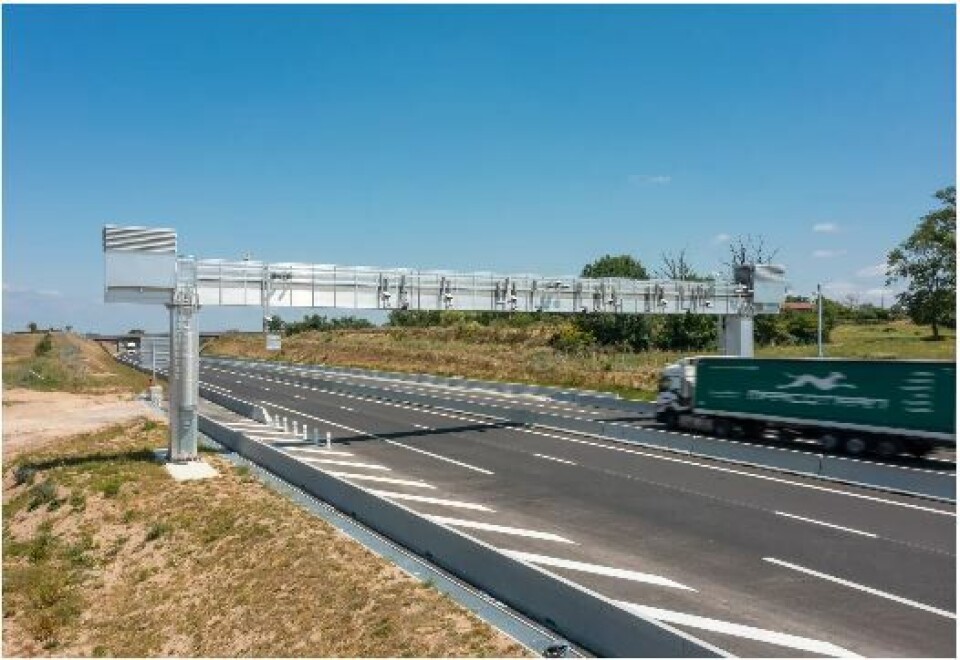-
Occitanie copper phase-out ramps up – how it will affect residents
There are some simple steps you can take to prepare for the switchoff
-
Which cars are stolen the most in France and why?
Perhaps surprisingly, the higher-end vehicles are not the most targeted
-
Several wolf sightings in centre of Frejus, Var
Rules have been relaxed around shooting wolves that threaten livestock
180,000 unpaid fines for no-barrier French motorway section
The system is under strain a year after introduction with the operators setting up a ‘crisis team’ to deal with the backlog

The automatic toll on a 88-km stretch of the A79 motorway has left many drivers confused or infuriated - and resulted in 180,000 unpaid fines during its first year.
The toll, between Saône-et-Loire and Allier (Bourgogne-Franche-Comté), promises ‘free flowing traffic’ with the system’s technology reading registration numbers and detecting toll badges.
The fees for driving on the motorway are then debited automatically from drivers’ bank accounts each month.
However, this system can be confusing for people who are unfamiliar with the road and who do not have toll badges. They are expected to pay online before or after the trip or via terminals at nearby service stations.
Aliae, the company that manages the motorway, claims that the system improves the flow of traffic and is better for the environment as vehicles consume less fuel by not having to stop at a toll booth.
However, for many months now, drivers have been expressing their dissatisfaction.
Some said they felt the payment systems were not explained properly, while others said that they were unable to pay online and had to call customer services.
Read more: Motorists highlight issues with France’s first free-flow toll motorway
How does the automatic toll work?
Vehicles simply drive under the motorway’s discreet tolls. If they have a toll badge, the system will detect it and charge the driver.
If the driver does not have a toll badge, they must pay via the Aliae website after the trip.
However, drivers who do not pay within three days are subject to a €90 fine. This fine then rises to €375 after 60 days.
The fine should not apply to British drivers however, due to a 2021 change in law that prevents the exchange of driver information between UK and European authorities.
Aliae told The Connexion that UK drivers could be fined, but were unsure exactly how this could work.
Consumer magazine UFC-Que Choisir reported in March that some drivers felt the payment systems were not explained properly, while others said that they were unable to pay online and had to call customer services.
The system has resulted in 180,000 unpaid fines over its first year, with 80,000 being chased in the courts and 600,000 ‘instructional letters’ sent to late payers.
Under this administrative burden Aliae, along with its parent company APRR, has had to scramble to set up a 25 person crisis team to keep track.
It has also had to relax their system of fines to manage the backlog.
‘Payment delays relaxed’
“In theory, people have 72 hours to pay, but in reality they have up to 15 days”, APRR director Guillaume Hérent told Le Parisien.
“We also stretched out this time to six weeks during July and August. In addition, the telepayment badge is now free on the A79 and the information signs have been improved.”
Mr Hérent says that despite all this, the system has been a success.
“We have registered eight million trips in one year. Ultimately, the fines only concern 5% of users.”
The automatic system system is still set to be included in all new French motorways, albeit on an opt-in basis, whereby users can still stop to pay at toll booths if they do not have a badge.
The A13/14 between Paris and Normandy is set to become the first motorway to be entirely toll-barrier free, with automatic tolling being used instead. You can read about it below.
Read more:
France prepares for first total no-barrier toll motorway. How will it work?
























